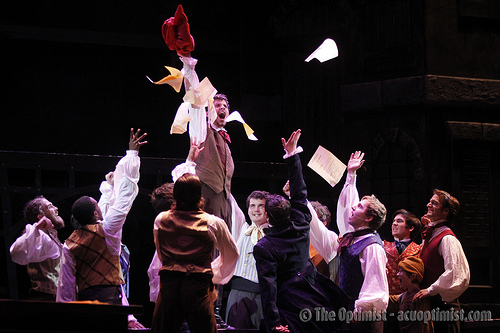By Adam Hester, chair of the Department of Theatre and director of “Les Misérables”
We’ve waited a long time.
After 28 Years, “Les Misérables” is still playing to packed houses on the London stage. Winner of more than 100 international awards and seen by over 65 million people worldwide, “Les Misérables“ sweeps its audience through an epic tale of broken dreams, passion and redemption, against the backdrop of a nation in the grip of revolution. This enthralling story is a timeless testament to the survival of the human spirit.
For many people, it’s the epic story, for others it is the romantic, lush music, and still others are drawn to “Les Misérables” for the dramatic scenery, lighting and costumes. All of this is true for us at the ACU theatre, too.
Perhaps, though, the most compelling aspect of this great musical is the connection to faith that permeates the story. We are constantly reminded of the grace of God woven tightly throughout the story. We have loved discussing the contrast of light and dark, the profound effect the Bishop’s forgiveness has on Valjean and, of course, the Isaiah passage at the end of the play. In these tumultuous and precarious times we live in, it is inspiring and hopeful to imagine the world Isaiah describes where nations, “will beat their swords into plowshares and their spears into pruning hooks. Nation will not take up sword against nation, nor will they train for war anymore.”
The immortal lyrics, “to love another person is to the see the face of God,” will forever move me, as I’m sure it does for so many who have seen the play. The contrast of Valjean’s choice to show compassion to one person against the brutality of the rich and powerful has been important in our discussions.
The play pulls no punches illustrating the darkness of women’s oppression forcing them into prostitution (“Lovely Ladies”) or the debauchery of the Thenardiers (“Master of the House”). That darkness makes lyrics such as, “it is the music of a people who are climbing to the light,” resonate with us in a very contemporary sense. As a company, we have discussed the importance of depicting a lost humanity and our need for a savior.
The deep, spiritual messages in “Les Misérables” make this the musical I’ve been waiting to do for almost 30 years.

